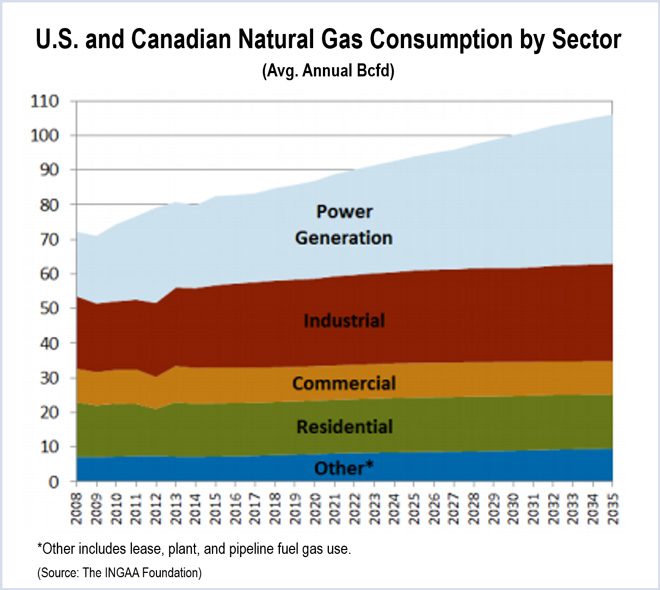By William Opalka

(Click to zoom.)
A U.S. Department of Energy-funded study on gas-electric coordination suggests natural gas pipeline operators create an independent system operator (ISO) to coordinate communications with electric grid operators.
The proposal is one of nine recommendations in a white paper on long-term electric and natural gas infrastructure requirements, conducted by the Illinois Institute of Technology for the Eastern Interconnection States’ Planning Council (EISPC) and the National Association of Utility Regulatory Commissioners. Although dated November 2014, the report was released by NARUC only last week.
Most of the report’s other recommendations — such as aligning daily gas and electric market schedules, building more pipelines to serve growing electric load and improving training — have been under discussion or development by industry participants for more than a year.
For example, in November 2013, the Federal Energy Regulatory Commission approved a rule allowing pipeline operators to exchange non-public operational information with RTOs. (See FERC OKs Gas-Electric Talk.)
But the report notes that while public domain information “is generally shared between pipeline operators and ISOs,” concerns about proprietary information remain.
“[E]stablishing a coordinator in the natural gas industry that could directly communicate with ISOs through appropriate protocols could be an option to solve the confidentiality problem and enhance the information sharing in natural gas-electric system planning,” the report says.
The recommendation doesn’t go as far as those from some other commentators, who have suggested a “Regional Pipeline Organization” or a centralized gas trading platform. (See Gas Trading Platform Finds Few Takers at Moeller Meeting.)
The report also calls for integrating natural gas availability into the North American Electric Reliability Corp.’s long-term and seasonal reliability assessments and for improvements to NERC’s Generator Availability Data System to better track generator outages resulting from a lack of gas supply.
The EISPC, which is funded by the Department of Energy, is a consortium of state-level agencies responsible for siting electric transmission across the 39 states in the Eastern Interconnection.
EISPC President David Boyd, a member of the Minnesota Public Utilities Commission, said the report will help regulators overcome challenges of the electric industry’s increased dependence on pipelines.
“As this report spells out, there are a number of differences between the two industries that, if not reconciled, could have unintended consequences for consumers,” he said in a statement.


